In the era of advanced technology and artificial intelligence, the gig economy has seen a significant rise, with an increasing number of individuals engaging in click work – performing small tasks online for minimal pay. This phenomenon raises ethical concerns about the treatment of click workers and the need for a minimum wage mandate in the European Union (EU). This article argues that establishing a minimum wage for click workers is not only a matter of basic human rights but also a crucial step towards creating a fair and just working environment in the digital age.
Click Workers Demographics
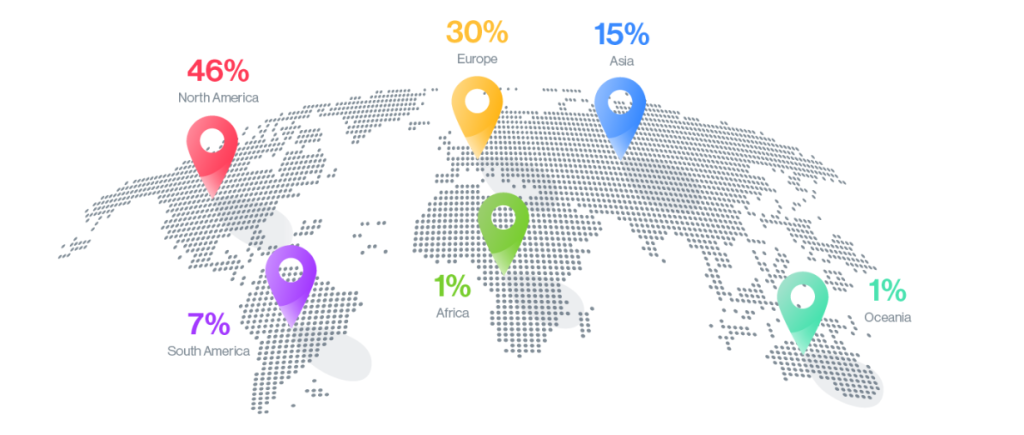
Contrary to popular belief, the majority of click workers live in countries where minimum wage is already mandated, making the problem turn into a legal loophole abuse. This is possible given that workers are paid to perform micro tasks and not for the hours of work. More often than not the workers are not even given a regular contract to perform such tasks but are instead given the chance to work when necessary. This makes it difficult to collect reliable statistics about the click workers and such data is usually in the hands of the employers that can decide how much to disclouse about it.
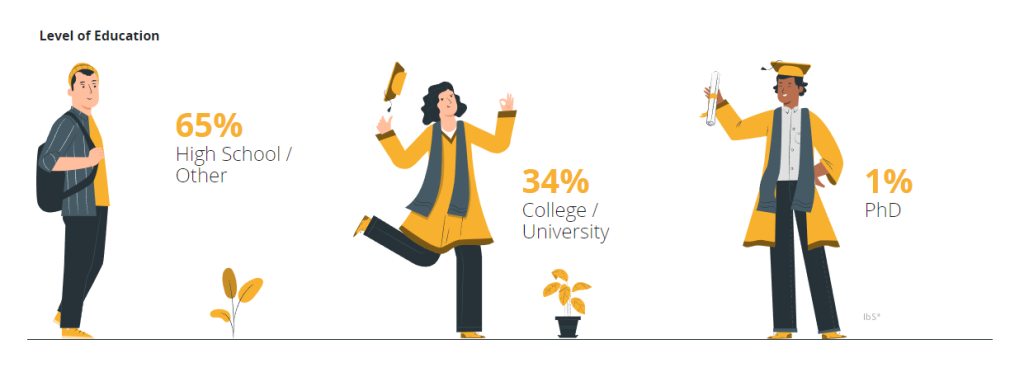
Basic Human Rights
Click workers, the unsung heroes of the digital realm, often find themselves entangled in a web of precarious working conditions. Engaged in tasks like data labeling, content moderation, and online surveys, these individuals contribute significantly to the digital landscape. Yet, the absence of a mandated minimum wage exposes them to exploitative working conditions, undermining their basic human rights. Drawing parallels with historical labor movements and the importance of unions, it becomes evident that fair compensation for labor is a fundamental principle that has long been recognized in various industries.
The gig economy’s rapid expansion has outpaced regulations, leaving click workers vulnerable to substandard pay and uncertain employment terms. By addressing the basic human rights of click workers, society can ensure that the digital revolution benefits all, not just those at the top.
Click Workers’ Earnings vs. European Hourly Wages
To grasp the severity of the issue, a comparative analysis of click workers’ average earnings against hourly wages across Europe is imperative. Numerous reports highlight the stark reality that click workers earn significantly below the minimum wage in several European countries. For instance, a click worker in Eastern Europe may earn a fraction of what an hourly worker in Western Europe earns for similar efforts.
Even Clickworker.com, one of the biggest sites used to have an expectation in their site below the minimum wage, and have since removed it:
Interestingly, Clickworker used to make a prediction of an hourly rate in the region of $9 per hour, or “well over $10” with experience and concentration. When I last re-checked the FAQs, the company seemed to have removed this bold prediction and given a more realistic prediction of variable earnings.
https://www.homeworkingclub.com/clickworker-review/
In the current site, nevertheless, they have gone as far as to remove any prediction, only breaking down how they calculate the amount payed and finishing the page with this statement:
Working at clickworker should not be considered a substitute for full-time employment or self-employment.
https://support-workplace.clickworker.com/support/solutions/articles/80000672347-how-much-will-i-be-paid-
Historical Precedent: Henry Ford’s $5 Per Day Wage
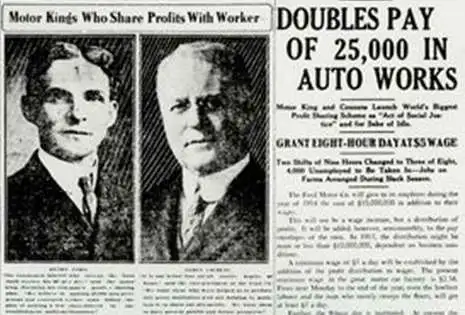
A historical lens reveals that fair compensation is not merely a modern concern but has deep roots. Henry Ford’s visionary decision in 1914 to implement a $5 per day minimum wage stands as a powerful example. This move was not solely a gesture of altruism but a strategic decision that led to increased productivity and loyalty among workers. This day in history: Henry Ford implements $5 per day wage in 1914 – CBS Detroit.
Before the wage increase, Ford workers were turning over at a rate of 370% per year. The wage increase made Ford a much more desirable place to work, and turnover fell to just 16%. The company’s profit grew approximately 60% over the next 3 years, thanks to increased worker productivity and higher wealth meant the workers could afford Ford cars.
By drawing parallels between the industrial era and the digital age, we argue that better-paid click workers are likely to be more effective and loyal. The lessons from history emphasize that fair compensation is not a drain on profits but an investment in a stable and motivated workforce. Just as Ford’s workers became consumers of his automobiles, well-compensated click workers can contribute to a thriving digital economy.
Fair Distribution of Profits
Critics may argue that digital companies cannot afford to pay click workers higher wages without compromising their profit margins. However, a closer look at the financial reports of major tech companies reveals a stark reality. Reports consistently show that these companies make exorbitant profits, often overshadowing the astronomical compensation packages of their executives.
Citing specific cases and financial data, we can debunk the notion that these companies cannot afford to pay click workers adequately. For instance, the latest Metas Quaterly Reports reveals a substantial year by year revenue increase and cost decrease, while click workers associated with content moderation continue to face financial precarity. This stark contrast highlights the need for ethical business practices that prioritize fair compensation over disproportionate profit accumulation.
Not only Meta, but other Tech giants like Amazon, Alphate and Twitter heavily target content moderation and click workers in their layoff rounds, as they look to lower costs.
Addressing Wealth Inequality and the Productivity-to-Wage Gap
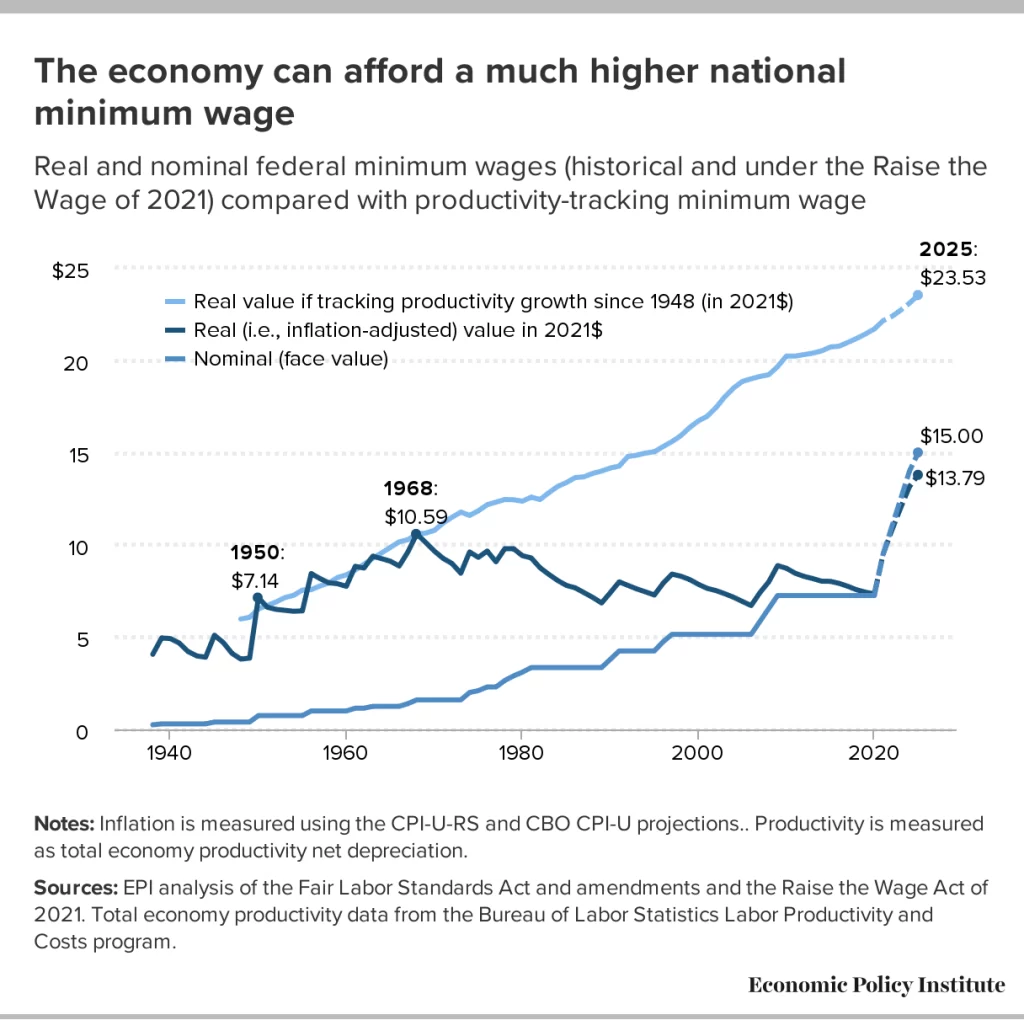
The widening gap between executive salaries and worker wages has contributed to growing wealth inequality, echoing concerns from the industrial era to the digital age.The graph and statistics illustrate how worker productivity has continued to rise while wages have stagnated.
Implementing a minimum wage for click workers aligns with the broader societal goal of narrowing this productivity-to-wage gap and fostering a more equitable distribution of wealth. By promoting fair compensation within the gig economy, we can contribute to a socio-economic landscape where the benefits of technological advancements are shared by all, rather than concentrated in the hands of a privileged few. This problem is observed accross the globe as the graph below reveals.
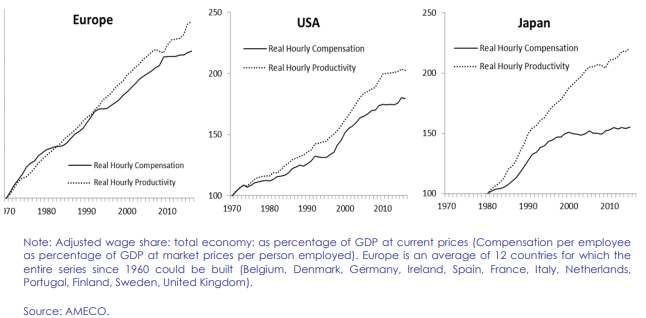
What could go wrong?
It’s easy to think of some very immediate effects of a minimum wage for click workers. First of all the companies will be incentivized to move their operations to countries where similar regulations don’t apply. We’re talking of the poorest countries, the one ones that are still to be considered an unexploited resources of companies. There what would be perceived as a below minimum wage would be instead a respectable salary able to sustain a family. One could then make the argument that such companies will therefore be doing good in moving their workforce to said countries. Given the data shown in the images above it is clear how for example Africa could be targeted for this type of project. But another drawback of having a minimum wage for clickworkers would be that the same workers could not rely anymore on the extremely flexible working arrangements from which they benefit now. The workers of the company don’t have in fact in many cases a minimum of hours to be performed and their remuneration is dependent on the tasks completed. Creating a minimum hourly wage would rule out a source of income for all of those who treat these occupations as a secondary job.
Conclusion
Despite the many counter arguments to be made, we still believe that measures need to be taken to regulate the click workers’ jobs in Europe. As in many other occasions throughout history the more powerful find themselves in the position to take advantage of the weakest giving little to nothing in return. Legislation is here to be considered as a form of regulation of what is legit and what’s not in this otherwise unilateral relationship. We think that Europe as the representative of civil and social rights should therefore lead the way in the hope that more countries will follow.
